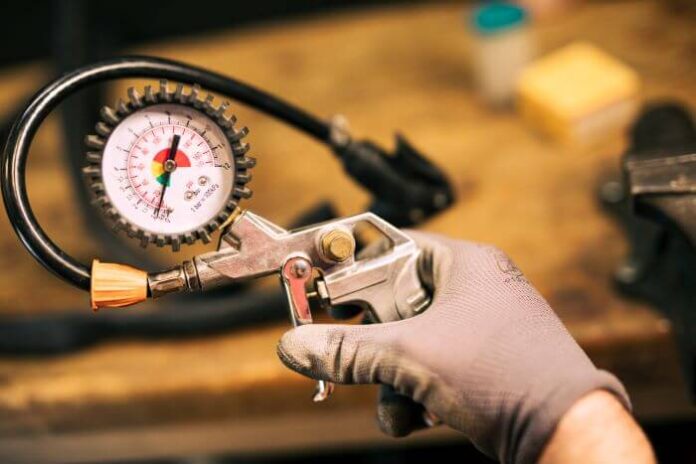If you’re a professional in the oil and gas, automotive, or general industrial industries, you know that having a reliable vacuum pressure measurement system is essential for success. However, with so many designs available on the market today, deciding which one is best suited for your specific needs can be overwhelming and challenging.
But we are here to help. So, in this post, we have put together some tips to help you choose the perfect vacuum pressure measurement system based on your workflow requirements. After reading this guide, we believe you shouldn’t have any issues choosing the right vacuum pressure measurement system again!
First, What Is Vacuum Pressure, and Why Should You Measure It?
Vacuum pressure is the force exerted by a vacuum on a surface. It is an important metric that helps measure the efficiency of vacuum systems.
In scientific and industrial applications, measuring vacuum pressure and controlling its levels is crucial to maintaining the optimal conditions for experiments or processes.
High vacuum pressures are significant in industries such as semiconductors, where cleanliness and precision are necessary. By measuring vacuum pressure, scientists can identify potential leaks or contamination, which can affect the quality of results.
Types of Vacuum Pressure Measurement Systems
When it comes to measuring vacuum pressure, several types of systems can be used. So, let’s do a quick roundup of the different types of vacuum pressure measurement systems in this section.
One such system is the mechanical gauge, which measures pressure based on the movement of a mechanical element. Another type is the ionization gauge, which uses ionization or ion collection to determine pressure.
Also, there are thermocouples and Pirani gauges that measure pressure based on the temperature of the gas.
Each type of system has its strengths and weaknesses, but all can provide valuable information about the pressure levels within a given vacuum environment.
Benefits of Using a Vacuum Pressure Measurement System
A vacuum pressure measurement system can provide several benefits, and if you are new to this, let’s show you some of the benefit you can enjoy from choosing the right one.
- Accurate and precise measurements: Vacuum pressure measurement systems are designed to provide accurate and precise measurements of vacuum pressure, which is essential for a wide range of industrial, scientific, and research applications.
- Improved process control: By accurately measuring vacuum pressure, the system can help improve process control by ensuring that vacuum levels remain within the required range, which can help optimize process efficiency, product quality, and yield.
- Reduced downtime: This is a very important factor across multiple industries. A vacuum pressure measurement system can help reduce downtime by quickly identifying and diagnosing issues with vacuum systems before they become major problems. This can help minimize equipment damage and unplanned downtime, which can result in significant cost savings.
- Enhanced safety: It can help enhance safety by detecting potentially hazardous conditions, such as leaks or over-pressurization, before they can cause accidents or equipment damage.
- Increased productivity: By providing accurate and reliable vacuum pressure measurements, a vacuum pressure measurement system can help increase productivity by reducing the need for manual monitoring and adjustment of vacuum systems.
Tips for Proper Installation and Maintenance
Proper installation and maintenance of equipment are crucial for ensuring the effectiveness and longevity of any machine or appliance. This also applies to vacuum pressure measurement systems.
So, if we have told you so much about how important it is to get your vacuum pressure measurement correctly, then we need to also mention how to ensure proper installation of the system.
First, ensure it is placed in a clean, dry, and well-ventilated location and that all the necessary connections have been made correctly. This will go a long way in ensuring that the system keeps running smoothly for a longer time.
Once installed, maintenance is also essential to keep the equipment in good working condition. Regular cleaning, checking for wear and tear, and addressing any issues promptly can prevent more significant problems from arising.
Remember that dedicating some time to taking care of your equipment correctly can help you can save yourself the hassle of costly repairs and replacements while enjoying trouble-free usage for years.
A Wrap-Up On Vacuum Pressure Measurement Systems
If you’re new to the vacuum pressure measurement systems world, chances are that you have many questions in your mind concerning it. How do they work? What kinds of measurements can they perform? And perhaps most importantly, why do you need one in the first place?
The good news is, with some research, you can quickly get up to speed on this essential piece of equipment.
Vacuum pressure measurement systems use various techniques to determine the pressure inside a vacuum chamber, including everything from thermal conductivity to ionization. Different methods are best suited to multiple applications, and choosing the one that is right for your needs is essential.
Considering all the essential factors, choosing the right vacuum pressure measurement system can be arduous – but you don’t have to go it alone! With the advice and guidance provided throughout this article, you now have the information needed to make a sound decision when selecting the ideal solution for your purposes.







